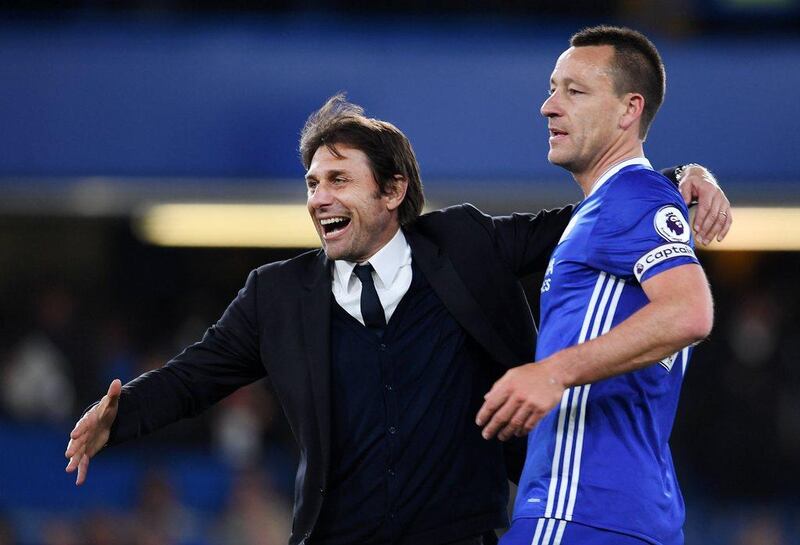There were 93 points, the second highest total in Premier League history. There were 30 victories, a record. But for an off-day in the FA Cup final, there would have been a double.
All of which may have suggested Chelsea could spend the summer merely tinkering with a winning formula while watching others rip up blueprints in expensive remodelling jobs. If it ain’t broke, don’t fix it? Not exactly.
Chelsea’s summer activity could prove the biggest overhaul conducted by a defending champion in the Premier League era; certainly, in a time of rapid inflation of transfer fees, the costliest ever. Even when, flush with Roman Abramovich’s cash, Jose Mourinho’s side won the league in 2005, he only made three genuine first-team purchases, in Shaun Wright-Phillips, Michael Essien and Asier del Horno.
Even excluding such supplementary signings as Willy Caballero, the back-up goalkeeper who has arrived on a free transfer, Antonio Conte will make at least four, perhaps as many as six. There will be a central midfielder, almost certainly Monaco’s Tiemoue Bakayoko, and a left wing-back, probably Juventus’ Alex Sandro. There will be one striker, preferably Everton’s Romelu Lukaku, and perhaps another. There will be a centre-back, possibly Roma’s Antonio Rudiger, if not two and maybe a right wing-back.
READ MORE:
- Manchester City: Club tell Joe Hart he can leave, but not on loan again
- Transfer window: Who's in and who's out in the Premier League
- Comment: If Sanchez signs for Man City it could be Aguero who makes way
Chelsea may not get much change out of £250 million, perhaps even £300 million (Dh1,184 billion or (Dh1,421bn). If the most dramatic sense of champions looking for an expensive upgrade and a radical rethink came in 2001, when Manchester United signed Ruud van Nistelrooy and Juan Sebastian Veron, that still only entailed only two newcomers.
Chelsea’s splurge may point to Conte's demanding nature, as well as highlighting a recognition they overachieved to dominate the division the way they did last season. Factors have converged to create the climate for vast outlay.
Aided by their European exile, Chelsea were able to make do with a core of 13 players last season, which patently will not be enough now. The end of John Terry's Stamford Bridge career, plus the winter sales of Oscar, Branislav Ivanovic and John Obi Mikel has freed up places in the squad and, in the Brazilian's case, generated significant funds. And Conte's switch to 3-4-2-1 has necessitated different types of players: specialist wing-backs, in particular, and additional central defenders comfortable operating in a trio.
Factor in Mourinho’s desire to be reunited with Nemanja Matic, Diego Costa’s determination to rejoin Atletico Madrid and Conte’s blunt text message informing the striker that he is not part of his plans and the spine of a successful side will have to be reconstructed.
That may be no bad thing. No side has retained the crown since United in 2009. Complacency, caution, inactivity or a temptation to assume the champions are the finished article are all possible reasons. Perhaps Chelsea have learnt lessons from history; not least their own.
Pedro was the only major buy in the summer of 2015, though Baba Rahman was an expensive addition at left-back and Radamel Falcao a high-profile loanee, and they slumped from first to 10th. Ramires was the lone expensive addition when they won the league in 2010. They did not retain it.
Look elsewhere and United only bought Marouane Fellaini in 2013, then slumping to seventh, and that Roberto Mancini felt Manchester City should have been more active in 2012. Then, hampered by Financial Fair Play, they did not replace Alvaro Negredo in 2014. Stability can be overrated. Those who have stood still have actually regressed.
Conte may conclude, in short, that a title-winning team can be broken up while the glow of glory persists, and that the quest to improve it begins immediately. For once, a title is a catalyst for change.






